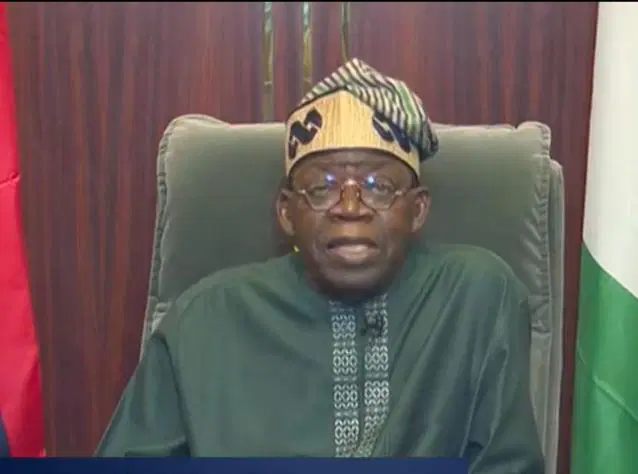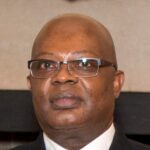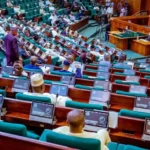President Bola Ahmed Tinubu’s declaration on Tuesday, where he suspended Governor of Rivers State, Siminalayi Fubara and slammed a state of emergency on the South-south state has ignited a fierce debate across Nigeria.
Legal experts and political commentators are sharply divided over a central question: Does the President have the constitutional authority to suspend a democratically elected governor?
On March 18, 2025, Tinubu declared a state of emergency in Rivers, citing a breakdown of law and order in the state.
Alongside the declaration, the President also suspended Fubara, his deputy, and the Rivers State House of Assembly, appointing retired Vice Admiral Ibokette Ibas as a sole administrator to govern the state.
The move has drawn widespread condemnation from opposition leaders, civil society groups, and legal scholars, who argue it represents an unconstitutional overreach.
However, several other voices have defended the action as a necessary intervention to stabilize a volatile situation.
At the heart of the debate is Section 305 of the 1999 Constitution, which outlines the President’s emergency powers but requires National Assembly approval for such declarations to take effect.
Critics point out that no evidence has been presented of Fubara requesting federal intervention, a key condition in some interpretations of the law. Furthermore, Section 188 provides that only impeachment by the State House of Assembly can remove a governor.
The Nigerian Bar Association (NBA) and prominent constitutional lawyers had been quick to denounce the suspension as a violation of the 1999 Constitution.
“The Constitution is unequivocal: only the courts or a duly followed impeachment process by the State House of Assembly can remove a governor,” said Festus Ogun, a constitutional lawyer.
He added:“Section 305, which governs states of emergency, does not grant the President the power to suspend an elected governor or dissolve a state government. This is a dangerous precedent that undermines democracy.”
This argument was echoed by the NBA, which emphasized that while the President can declare a state of emergency under specific conditions—such as war, natural disasters, or a severe breakdown of public order—such a declaration must be ratified by the National Assembly within two days if in session, or ten days if not.
The NBA stated in a statement issued on Wednesday: “Even then, it does not authorize the suspension of elected officials. The President’s action is a civilian coup, plain and simple.”
Also, prominent human rights lawyer and Senior Advocate of Nigeria (SAN), Ebun-Olu Adegboruwa, has criticized the declaration of a state of emergency in Rivers State, calling it unconstitutional and an overreach of authority.
Adegboruwa argued that it lacks legal grounding and undermines democratic principles.
Speaking with the press, Adegboruwa asserted that the Nigerian Constitution sets clear conditions for declaring a state of emergency, which he claims have not been met in this instance.
He stated: “The Constitution is explicit under Section 305 that a state of emergency can only be declared when there is a clear breakdown of public order and safety beyond the control of the state government, and even then, it requires the approval of the National Assembly. What we are witnessing in Rivers State does not justify such a drastic measure. This is a political maneuver dressed as a security intervention.”
Political analysts are equally split, with some viewing the suspension as a power grab orchestrated by Tinubu’s All Progressives Congress (APC) to wrest control of Rivers State from the Peoples Democratic Party (PDP).
The Labour Party’s presidential candidate in the 2023 election, Peter Obi, also criticized Tinubu’s declaration of a state of emergency in Rivers State, labeling it as both “unconstitutional” and “reckless.”
Obi, a two-term Governor of Anambra State made his stance known in a statement posted on his X handle on Wednesday, arguing that the move undermines Nigeria’s democratic progress and flouts the rule of law.
Obi said: “The unilateral decision of President Bola Tinubu to remove Governor Siminalayi Fubara of Rivers State from office is not only unconstitutional but also reckless.
“It has plunged us back into a state of lawlessness, hugely undoing the progress we have made in these 26 years of democratic journey. By disregarding the rule of law, the President has shown a dangerous willingness to trample on democracy.”
In the same vein, former Vice President Atiku Abubakar has criticized Tinubu’s recent declaration of a state of emergency in Rivers State, labeling it as an act of “political manipulation” and an “assault on democracy.”
In a strongly worded reaction shared via his verified social media platforms, Atiku accused Tinubu of being complicit in the turmoil that has engulfed Rivers State.
He further argued that the President’s actions undermine years of progress in stabilizing the Niger Delta.
The statement reads in part: “The declaration of a state of emergency in Rivers State reeks of political manipulation and outright bad faith.
“Anyone paying attention to the unfolding crisis knows that Bola Tinubu has been a vested partisan actor in the political turmoil engulfing Rivers. His blatant refusal — or calculated negligence — in preventing this escalation is nothing short of disgraceful.
“Beyond the political scheming in Rivers, the brazen security breaches that led to the condemnable destruction of national infrastructure in the state land squarely on the President’s desk.”
Chidi Amadi, a political commentator, asserted: “This is less about governance and more about settling political scores.”
“The fingerprints of Nyesom Wike, a key APC figure, are all over this crisis. Suspending Fubara is a step toward consolidating federal influence over a state that has resisted APC dominance.”
But others see the move as a pragmatic response to a governance vacuum.
Amina Yusuf, a pro-government commentator argued: “Rivers State has been paralyzed by this feud.”
Also, the Attorney-General of the Federation (AGF) and Minister of Justice, Lateef Fagbemi, has doubled down on the president’s decision to suspend Fubara alongside other elected officials in Rivers.
Fagbemi, while briefing journalists at the Aso Rock Villa, Abuja on Wednesday said: “Now, when do you think he (President Tinubu) should have come in? Is it when everything has been destroyed? I don’t think so.”
“I think the President has acted timeously. He has given the opportunity to all the parties involved to make amends. Before then, he had to assemble them, and he had tried to mediate,” he stated.
Speaking further, the AGF noted that the National Assembly must ratify the suspension with a two-thirds majority for it to stand.
“The ball is now in the court of the National Assembly,” he said.
“If they do not ratify it, the suspensions will not stand.”
The PDP has since rejected the emergency rule outrightly, calling it “an attempt at state capture” and urging the National Assembly to block what it describes as an “illegal power grab.”





